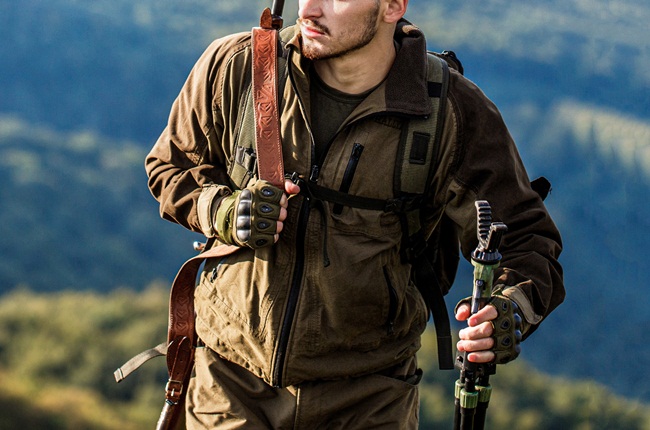With hunting season officially underway, it’s critical to remember and abide by the rules of safety when you’re out in the field. To put it another way, you should never take your own safety for granted.
People in certain parts of the world look forward to hunting season. Many of them view it as a challenging pastime that takes considerable skill. Meanwhile, for some, it's a way to fully experience nature while providing food for their families.
According to seasoned hunters, hunting isn’t just walking in the woods, shooting a creature, and waiting for it to die. They get up at the crack of dawn and are able to take in the sounds of nature. They also have the opportunity to watch the sunrise and enjoy the tranquility of their surroundings. On top of everything, they get to bring some fresh meat home at the end of the day. Overall, it can be a rewarding and enjoyable experience.
Given those positive aspects of hunting, it’s understandable if you wish to learn how to hunt as soon as possible. However, you'll want to make sure you're well prepared and knowledgeable about hunting in the wild safely.
To accomplish that, you can take hunter safety courses on websites like https://www.ilearntohunt.com/ in order to educate yourself and figure out how you can have successful, ethical hunts. Also, you should keep reading to get some helpful tips to be safe on your first hunting experience:
1. Never shoot outside of your zone of fire
One of the most critical aspects of hunting safely is not firing your rifle beyond your zone of fire, which refers to the 45-degree zone in front of a hunter. When trying to hunt for animals, stay inside that zone because it's the only area you can see clearly. Since you don't know what lies outside your zone of fire, it's safer to avoid shooting there.
Additionally, keep in mind that your zone of fire changes with each step you take. Therefore, make sure you can locate the other members of your hunting group at all times.
2. Always have self-control
Self-control is another crucial part of hunting safety. Hunting might get you pumped up, but that same elation can push you to make rash decisions. As a result, while out hunting, you must try your best to keep your emotions under control.
If you notice yourself growing worried or enthusiastic, it's best to take a breather. If this requires momentarily stopping the hunt, go ahead and do just that. No hunt is worthwhile if needless risks have to be taken; the safety of all those who may be somewhere in the field should take precedence no matter what. A more relaxed gunman is a sharper and more precise shooter.
3. Practice shooting accurately
Accuracy isn’t only necessary to become a competent hunter; it’s also required to ensure that the hunt is safe from start to finish. If you can’t consistently hit your targets, there's no point in going hunting. What’s more, you’re endangering yourself and everybody on the field. Therefore, it's best to master your shooting skills before going for a hunt.

4. Identify and verify your target before shooting
If you’re unsure of your target, don't fire a shot. Before firing your hunting rifle, you must first identify what you're shooting at and make sure it's completely in your field of view.
For example, if your hunting location is in the woods, there could be a lot of surrounding trees that might hinder you from identifying your target’s whereabouts clearly. To avoid any mishaps, check if you can move to a spot that’ll allow you to get an unobstructed view prior to taking the shot.
5. Learn how to properly carry your firearm
Last but certainly not least, practice safety while holding your firearm. How you carry your rifle is critical for the protection of everyone in your crew and anyone else who might be in your line of fire. When you follow the rules of firearm safety, you protect yourself and the people around you from harm in the event of an unintentional discharge.
- Keep your muzzle aimed in a safe direction. Never point the barrel of your gun at something you don't intend to shoot. Practicing proper muzzle control is essential in the field, and it should be ingrained in your mind well before ever setting foot on the range.
- Treat your firearm as if it were loaded. A weapon is never unloaded. When a firearm is presented to you in the field, always think it’s armed, even if you’re told it’s empty.
- Consider what's surrounding your target. When shooting, you must always know what’s in front of and behind your target. If you’re unable to see beyond your target, don’t take the shot.
- Keep your finger away from the trigger. Never place your finger inside the firing pin when you're in the field unless you’re prepared to shoot. Inexperienced hunters tend to have a lot of trouble with this. Therefore, it's a must to learn it before going on a hunt.
Wrapping up
With hunting season officially underway, it's critical to remember and abide by the rules of safety when you’re out in the field. To put it another way, you should never take your own safety for granted. If you follow the advice given above on your first hunting experience, you could significantly reduce your chances of being accidentally harmed when carrying a gun.





























































































































































































